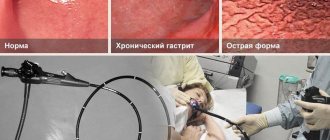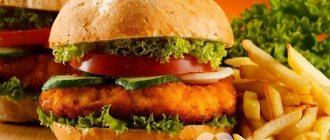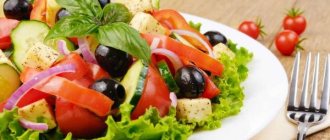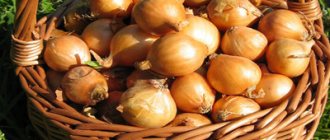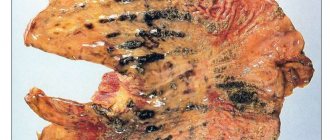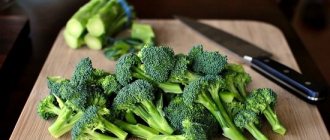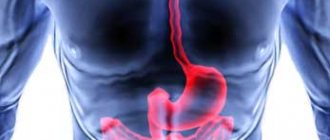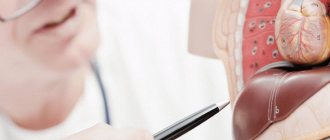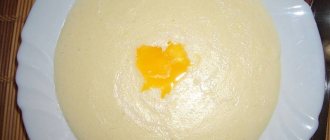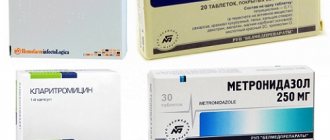Signs of exacerbation of gastritis
More than half of the world's population faces this disease. Gastritis gets “younger” every year. This diagnosis is increasingly being made in young children. Such statistics are associated with the quality of modern food products and poor ecology in cities.
The signs of exacerbation of gastritis are quite recognizable and it is not so difficult to determine the diagnosis from them:
- pain in the stomach area, which increases significantly after eating;
- nausea;
- sometimes one-time vomiting;
- heaviness in the stomach;
- belching;
- weakness and fatigue;
- unpleasant taste in the mouth.
These symptoms indicate an exacerbation of gastritis. Treatment with folk remedies and medications will help you quickly cope with the disease and its manifestations. Often this pathology occurs due to the intake of low-quality products. Then first of all you need to cleanse your stomach. Then take medications depending on the symptoms.
Signs of gastritis with high acidity
Previously, when the term gastritis with high acidity was simply mentioned, it was more often about superficial gastritis (Superficial gastritis, treatment, diet), reflux - gastritis, erosive gastritis against the background of high acidity and Helicobacter pylori. But today, acidity is not an important diagnostic sign, and gastritis is classified according to the type of change in the mucous membrane into: atrophic, erosive and hypertrophic. Symptoms of gastritis:
- Aching pain in the epigastric region, in the left hypochondrium, sometimes cutting paroxysmal. Antral gastritis hurts in the right hypochondrium.
- Heartburn is the most characteristic symptom of gastritis with high stomach acidity.
- Sour belching is also a characteristic sign of increased acidity in the stomach; this symptom is distinctive, since with low stomach acidity (reduced secretory activity when food is poorly digested), the patient most often belches rotten (see Symptoms of low stomach acidity).
- Nausea and vomiting - nausea most often occurs on an empty stomach, with long breaks in food, vomiting is characteristic of the erosive process. Vomiting occurs when a person with gastritis with high acidity has eaten too much acidic foods. In this case, it is the only option to reduce excess stomach acid.
- Bloating . With hyperacid gastritis, constipation predominates, against the background of which fermentation processes develop, causing bloating and gas formation.
- Increased or decreased appetite. Usually, with superficial gastritis after eating, the acidity decreases slightly and causes an increase in appetite, but with acute gastritis or severe damage to the stomach, pain during and after eating naturally reduces appetite.
- Night pain and hunger pain - pain often bothers patients when there is no food in the stomach, that is, on an empty stomach, at night and after a long break in food.
In case of chronic gastritis with high acidity, the symptoms are not so pronounced and only with provoking factors:
- overeating
- long break from eating
- alcohol abuse
- food poisoning
- severe stress
- eating poor quality, too spicy, fatty, hot or cold food
- when smoking
can cause exacerbation up to acute erosions or ulcers. Chronic gastritis is a long-term change in the mucous membrane and its exacerbation leads to acute gastritis of any severity.
Therefore, any change in the digestive process, which is expressed by nausea, pain, unstable stool, heaviness in the stomach, increased gas formation, should force a person to undergo examination by a gastroenterologist, since not only gastritis, but also more serious gastrointestinal diseases can cause similar symptoms, especially in our time oncological tension.
Diet during gastritis
This disease requires 100% dietary intake. In the first days of an exacerbation, the patient must completely refuse regular food and maintain an adequate drinking regime. On days 2-3, it is allowed to consume decoctions of oats and rice. To prepare them you need:
- Pour 1 glass of oats with 1.5 liters of water;
- simmer over low heat until half the liquid has evaporated;
- strain the broth through cheesecloth.
You should take this remedy only half a glass before meals. Rice water is prepared according to the same principle and is used during gastritis, which is accompanied by diarrhea. Help for exacerbation of gastritis must be timely to avoid complications, therefore experiments with medications and folk recipes are unacceptable here.
On days 3-4, the patient can expand his diet. Porridges are added to the menu, which need to be boiled as much as possible. You can eat vegetable soups, pureed through a sieve or pureed in a blender.
By the end of the week, you can introduce boiled meat or steamed cutlets into your diet. Under no circumstances should you eat spicy or salty foods at this time. Fried foods are excluded from the patient’s diet for 3-6 months. In chronic forms of gastritis, spicy foods should be completely absent from the menu.
During gastritis, the use of a variety of jelly is encouraged. They envelop the walls of the stomach and prevent them from contacting food, thereby gradually eliminating the inflammatory process in the mucous membrane.
The diet for exacerbation of gastritis with high acidity has several specific rules, such as:
- exclusion of honey and lemon;
- minimizing carrots in the diet;
- exclusion of freshly squeezed juices.
These ingredients contribute to the production of hydrochloric acid in the stomach in excessive quantities, which is dangerous in case of high acidity. It is also necessary to completely exclude honey from the patient’s menu.
Diet
Proper nutrition helps to quickly alleviate the patient's condition during seasonal spring or autumn exacerbation of chronic gastritis. Drug therapy together with a proper diet promote recovery. Nutrition during an exacerbation should be varied and balanced. When choosing products, you need to take into account the level of acidity. In addition, in case of any form of the disease, it is necessary to maintain a healthy lifestyle and give up bad habits.
In case of exacerbation of gastritis, the following is excluded from the diet:
- carbonated and alcoholic drinks;
- fresh fruits and vegetables;
- smoked meats;
- coffee;
- mushrooms;
- pickles and marinades;
- sausages;
- canned food;
- seasonings;
- spicy cheese;
- fresh bakery;
- fatty and spicy foods;
- mustard.
The following foods should be included in your daily meals:
- various grains (except rice);
- lean meat and fish;
- dairy products;
- vermicelli and pasta;
- crackers;
- natural juices.
Some recommendations for organizing nutrition during exacerbation of chronic gastritis:
- In the morning, after waking up, drink a glass of clean water. This allows you to wash away the mucus that envelops the walls of the stomach at night;
- meals should be regular, you need to eat at the same time;
- There should be 3 main meals a day and 2-3 additional meals between them;
- you need to eat food in small portions;
- After eating, it is advisable to rest for a few minutes; you can simply sit relaxed so that the food is better absorbed;
- eat only freshly prepared food;
- limit the amount of salt and spices;
- consume foods boiled or steamed;
- food should be warm.
Exacerbation of gastritis: symptoms, treatment at home
At the first signs of acute manifestations of the disease, it is necessary to rinse the stomach. This can be done at home by drinking plenty of warm water. Then, if possible, induce vomiting.
An enema with a soda solution of water at room temperature will also ease the condition. Under no circumstances should you use warm liquid. Otherwise, the intestinal walls will absorb water along with toxins, and the body will be poisoned.
On the first day, the patient must remain in bed. It is forbidden to be nervous and physically overexert. During this time, you need to follow a diet and drink plenty of fluids.
Medications
After consultation with a doctor, medications can be used. To reduce pain symptoms, you need to use painkillers and antispasmodics. As such, there is no single cure for gastritis. It is necessary to use a complex of drugs.
Each drug will be aimed at eliminating one or another symptom:
- elimination of spasmodic pain - “No-shpa”, “Papaverine”, “Spazmolgon”;
- for diarrhea - Smecta, Loperamide;
- for heartburn - “Rennie”, “Pechaevskie”, “Maolox”;
- painkillers - “Analgin”, “Diclofenac”, “Baralgin”, “Renalgan”.
The use of Almagel and Phosphalugel often brings relief. These drugs quickly relieve pain and eliminate heartburn. All these medicines are sold in pharmacies without a prescription. They have very convenient packaging in bags for one-time use. Therefore, it is easy to take this medicine even on the road.
If the bacterium Helicobacter pilory is detected in the body, then antibiotics must be present in the prescriptions. The most commonly prescribed drugs are Clarithromycin or Azithromycin. The course of treatment is 7-10 days. Along with the antibiotic, you need to take drugs that populate the intestines with beneficial bacteria. For example:
- "Bio-gaia";
- "Acidolac";
- "Linex";
- "Entergermina."
Thus, diarrhea and bloating will not occur during treatment. There is no single form of cure for gastritis, so there should always be representatives from different groups in the house in case signs of the disease occur.
How to treat gastritis of the stomach
What medications do doctors indicate in their prescriptions to cure gastritis with high acidity? You need to know that there is no universal cure for gastritis. A specialist should prescribe drugs, taking into account an integrated approach, the expected effect on the cause of the disease and the patient’s sensitivity to such substances. Familiarize yourself with the mechanism of action and the names of medications that help cure the disease.
Treatment of gastritis with high acidity with medications
One of the main medical methods of combating such a disease is eradication therapy - a set of measures aimed at eliminating the bacteria that cause the disease. In this case, two types of antibacterial drugs are prescribed. For example, a patient needs to take Amoxicillin - 1 g (or Metronidazole - 500 mg) and Clarithromycin - 500 mg twice a day for two weeks.
It must be remembered that although antibiotics are quickly absorbed from the blood into the gastric mucosa, effectively eliminating the infection there, they can also have a negative effect. Often such drugs cause nausea, diarrhea, and skin rashes, so it is important to undergo treatment under the supervision of a specialist. At the same time, the doctor will prescribe other medications that will reduce the production of hydrochloric acid, neutralize its effect on the gastric mucosa, and will protectively coat the inner surface of the organ and relieve its spasms.
Proton pump inhibitors
This group of drugs is an effective cure for gastritis with high acidity, because their use reduces the production of hydrochloric acid in the stomach. As a result, damage to the mucous membrane of the organ is stopped, but such substances can also cause side effects - headaches, defecation disorders, skin rashes. As a cure for gastritis of the stomach, patients are often prescribed a weekly course of the following proton pump inhibitors (taken twice a day):
- Esomeprazole, Omeprazole – 20 mg each;
- Lansoprazole – 30 mg;
- Pantoprazole should be taken 40 mg.
Antacids for gastritis with high acidity
Drugs from this group of medications will create a protective film on the inner surface of the stomach, compensating for the insufficient protection of the organ from acid and relieving the exacerbation of gastritis, but when prescribing, their possible side effects must be taken into account. Thus, medications containing bismuth salts: Vikalin, De-Nol, Gastro-Norm, etc. can cause nausea in the patient, and sometimes there is a urge to have frequent bowel movements. These drugs have contraindications for use: childhood, pregnancy, lactation, kidney failure.
- How to make a weight loss cocktail
- How to wallpaper corners correctly
- Burpee - what kind of exercise is it? Techniques for weight loss and Burpees method for beginners
Pharmacies offer antacids in the form of suspensions, gels, capsules, and tablets with a pleasant taste. Drink them after meals and before bed. The following drugs are often used as a cure for ulcers and gastritis:
- Maalox, Almagel - contain a combination of aluminum and magnesium hydroxides to provide maximum therapeutic effect;
- Phosphalugel - contains aluminum phosphate.
Histamine receptor blockers
How do these medications help against gastritis with high acidity? The active ingredients of such medications stop the spread of hydrochloric acid, which helps restore the gastric mucosa and reduces pain. Compared to proton pump inhibitors, this group of drugs is less effective, and the course of treatment is longer: from 2 to 4 weeks, 2 tablets per day. These medications include:
- Ranitidine;
- Telfast;
- Cesera et al.
Antispasmodic tablets for gastritis of the stomach
Such drugs affect the smooth muscle tissue of this organ and improve blood flow in its walls. As a component of the treatment regimen, they are recommended because of their ability to quickly relieve an attack of pain, but you should not drink such tablets uncontrollably - this can even cause cardiac arrest and nervous system disorders. Antispasmodics that help with gastritis include:
- myotropic drugs acting on the muscles of the stomach: No-shpa, Drotaverine, Papaverine, etc.;
- neurotropic drugs or anticholinergics, relieve spasms and reduce acidity: Aprofen, Difacil, Buscopan, etc.
Folk remedies for gastritis with high acidity
Often at home, sodium bicarbonate - baking soda - is used as a medicine for the stomach. After taking it, the acid in the stomach is quickly neutralized, but the effect of this drug is short-lived, and frequent use will be harmful. It is better to use medicinal plants or other natural pharmacy products to eliminate the unpleasant symptoms of the disease.
Herbs for gastritis
Many medicinal plants are used as a cure for gastritis with high acidity. Herbal teas, infusions and decoctions are prepared from them, which are then taken to mitigate the inflammatory process. The use of the following herbs for gastritis gives good results:
- chamomile;
- St. John's wort;
- calendula;
- nettle;
- celandine (taken in small doses - the plant is poisonous!).
Traditional medicine recipes
Is it possible to alleviate and eliminate the manifestations of the disease with the help of such means? Try these simple remedies to cure gastritis with high acidity:
- drink 1 tsp on an empty stomach and before bedtime. flaxseed, olive or sea buckthorn oil, washed down with 0.5 tbsp. warm water;
- Half an hour before meals, drink 0.5 tbsp. freshly squeezed potato juice - three times a day;
- pour flax seeds (2 tsp) with a glass of boiling water, leave overnight, then divide the infusion into 3 servings and drink during the day before meals.
Find out how to treat gastritis with folk remedies and medications.
Specific drugs
What to drink during exacerbation of gastritis? This question arises for almost every second resident of the country. Due to errors in nutrition, many people face the problem of stomach pain. There are a number of drugs, the use of which is justified only after consultation with a gastroenterologist.
"Vikalin" has an enveloping effect. It is made from plant ingredients. This medicine also has an antacid effect and can help with pain and heartburn.
"Gastrocepin" helps reduce the secretion of juice in the stomach and thereby protects the mucous membrane from irritation. It has a fairly high cost, but it justifies itself with an excellent and quick effect in the fight against the disease.
“De-nol” envelops the walls with a thin film that protects the mucous membrane from the negative effects of hydrochloric acid.
Ranitidine reduces the production of gastric juice; its undeniable advantage is its minimal cost. But it cannot be used for a long time. It will be an excellent assistant during an acute attack with severe pain.
How to get rid of stomach pain
To eliminate stomach pain, it is recommended to take medications prescribed by your doctor, change your diet, and follow other recommendations of specialists.
The following medications can be prescribed for stomach pain due to gastritis:
- painkillers that are more effective to administer intramuscularly, rather than in the form of tablets, to avoid stomach irritation: “Baralgin”, “Analgin”, “Papaverine”, “Spazmalgon”;
To relieve other accompanying symptoms, use:
- antacid medications and antisecretory drugs to reduce stomach acidity (in case of increased gastric secretion). Similar drugs relieve heartburn and protect the mucous membrane - “Maalox”, “Phosphalugel”, “Atropine”, “Pirenzepine”;
- antidiarrheal and antiseptic drugs: “Diosmectite”, Bismuth subnitrate;
- to restore the mucous membrane, drugs are used that increase mucus secretion ("Liquiriton", licorice root), stimulate cell regeneration ("Metacyl", rosehip oil), and have an antiseptic effect ("Sucralfate", "De-nol");
- antibacterial drugs. If Helicobacter pylori is detected, agents that can prevent its growth and reproduction are included in the course of treatment;
- Smecta and activated carbon tablets have an antitoxic effect.
Surgical intervention - laparotomy or gastrectomy, is done only when bleeding begins or the process of degeneration of normal mucosal cells into malignant ones begins. Typically, this can be observed if the patient has the following types of gastritis:
- giant hypertrophic;
- rigid;
- atrophic;
- polyposis.
The operation can temporarily improve the patient’s poor health, but does not lead to positive morphological transformations of the stomach. In almost half of cases of gastric bleeding without an established cause, surgical intervention cannot be avoided. But even the use of surgical intervention does not guarantee the absence of relapse.
Diet for pain
For stomach inflammation, drinking fresh vegetable juices is considered effective. They do not irritate the stomach and contain nutrients. Such juices include beetroot, pumpkin, carrot, and potato.
Another recommendation is to follow a diet, and in the acute period it is advisable to switch to warm, thoroughly ground food, drink more water and vegetable juices, and exclude meat and other rough foods from the diet. You should eat frequently and avoid intervals between meals of more than 2 hours, so as not to provoke pain.
For gastritis, it is recommended to consume honey and drink milk. There are no restrictions on the consumption of honey, as it has antibacterial properties that help destroy unfavorable microflora and does not affect the acidity of the stomach.
Milk envelops the mucous membrane of the organ, protecting it from aggressive food, but only milk should be consumed. It is better to avoid fermented milk products, especially if it is gastritis with high acidity.
Following a diet will help not only get rid of pain, but also radiating pain in the chest area.
In case of increased stomach acidity, the following nutritional requirements must be observed:
- exclude fatty, spicy foods, fast food, and smoked foods from the diet.
- Minimize the consumption of onions, garlic, canned foods, marinades, and do not drink sweet carbonated drinks.
- eat more foods that have the ability to coat the gastric mucosa.
- When preparing food, use gentle methods of heat treatment of products - baking, boiling and steaming.
For low stomach acidity:
- Do not eat fatty foods and baked goods.
- Use a mechanically gentle method of preparing dishes - grind solid foods.
- Eat small and often.
- Do not consume foods that can cause fermentation - cheese, milk, sour cream, confectionery.
Video on the topic:
Antacids
Treatment of exacerbation of gastritis at home is accompanied by the use of drugs to reduce acidity in the stomach. Such medicines are called antacids. They can only be taken by people with high acidity.
The most popular drugs are “Phosphalugel” and “Almagel”. These medications should be taken after meals. Thus, their effect will be longer. You cannot drink the gels with water, otherwise it will wash away the protective film from the walls of the stomach and the therapeutic effect will not be achieved.
After taking it, you need to lie down and turn over from side to side. In this case, the medicine will be evenly distributed throughout all the walls of the stomach. It must be remembered that with prolonged use of these drugs, large amounts of phosphorus are removed from the body. Therefore, after a course of treatment with such drugs, you need to take vitamins containing this element.
Causes of exacerbation of gastritis in adults
Symptoms of exacerbation of gastritis appear suddenly, and a prerequisite for their occurrence is one-time or prolonged exposure to negative factors that irritate the gastric mucosa. The following are the most common causes of exacerbation of gastritis.
Seasonal
Exacerbation of gastritis most often occurs during the off-season. This is mainly autumn and spring, when there is a sharp change in air temperature, cooling begins, rains or high air humidity predominate, and the quality and diet also changes. The body's protective functions become weaker, which leads to a seasonal exacerbation of inflammatory processes in the gastric mucosa.
Nervous
Against the background of strong psycho-emotional arousal or nervous stress, intestinal motility accelerates, and an involuntary spasm of the muscles responsible for contraction of the stomach occurs.
A healthy person does not feel any discomfort in the digestive tract, but in a patient with gastritis this leads to exacerbation of inflammation of the gastric mucosa. With prolonged stress and nervous tension, the symptoms of the disease only worsen.
After antibiotics
A course of antibacterial therapy disrupts the balance of beneficial and pathogenic microorganisms present in the human digestive system. Active and auxiliary substances contained in tablets, medicinal solutions and suspensions irritate the gastric mucosa, causing an even more acute inflammatory process.
Before your period
2-3 days before the start of menstruation and the same amount of time after menstruation, a short-term imbalance of sex hormones occurs in a woman’s body. This negatively affects the functioning of the entire digestive system.
Women who have chronic stomach disease may experience exacerbation of the disease and symptoms of inflammation of the gastric mucosa. This cause of exacerbation of the disease is the least common in medical practice.
During pregnancy
During pregnancy, a woman's body is subjected to enormous physical and metabolic stress. Against the background of a temporary metabolic disorder, hormonal imbalance or toxicosis, a temporary exacerbation of chronic diseases, including gastritis, is possible.
After a binge
Gastritis, an exacerbation (symptoms of the disease arise sharply and are manifested by sudden spasmodic pain), which is caused by the consequences of prolonged consumption of alcoholic beverages, may be accompanied by attacks of severe vomiting and complete refusal of food.
During the entire drinking period, an excess amount of harmful substances accumulates in the human body, and the mucous membrane is burned with ethyl alcohol. These harmful factors lead to local or widespread inflammation.
Help with low stomach acidity
Most often, the use of Apilak is justified. This drug promotes the active production of hydrochloric acid and increases appetite. At the same time, the secretion of juice in the stomach also increases.
In this case, folk remedies help well. Patients in this category need to drink freshly squeezed carrot and beet juices. It is also useful to use wormwood tincture and plantain juice.
Honey or propolis will help stimulate the secretion of gastric juice. It should be diluted in equal proportions with warm water and drunk half a glass before meals. It is added to various herbal decoctions and tinctures.
Treatment with folk remedies
If you have high acidity, you should use alternative medicine recipes carefully. With this type of disease, potato juice can have a beneficial effect. It must be prepared immediately before use. The drink contains a lot of starch, which coats the walls of the stomach and protects against the aggressive effects of hydrochloric acid.
A decoction of flax seeds can also be an excellent remedy. The preparation method is quite simple:
- steam a spoonful of seeds in a glass of boiling water;
- strain through cheesecloth;
- take a teaspoon before meals.
This remedy can be used for different types of gastritis. With low acidity, the use of cabbage juice is justified. This treatment is long-term with increasing the dose of juice per dose to 250 ml.
What fruits can you eat?
During the first week of illness, you should follow a strict diet. Then you can gradually introduce a variety of foods into your diet. An apple baked in the oven has a good effect on the stomach and does not irritate it. If the acidity is low, you can add honey to it.
If you have low acidity, you can eat some fruits in small portions in several doses per day. Allowed fruits include:
- pear;
- peach;
- banana;
- plum;
- persimmon.
The fruits must be peeled and processed into pulp. You can combine no more than two types of fruits per day. It is allowed to include berries in the diet that do not contain small bones. For example, cherries and sweet cherries are acceptable, but strawberries and currants are prohibited.
It is allowed to drink pomegranate juice during remission. It contains a powerful dose of vitamins and perfectly stimulates the production of gastric juice. Orange has the same properties.
Read more about pain due to gastritis
Gastritis is manifested by a malfunction in the activity of almost all organs of the gastrointestinal tract (liver, pancreas, duodenum, etc.) and severe pain. Inflammation is accompanied by a decrease or increase in stomach acidity. Pathology of the stomach occurs against the background of various disorders in the diet - too strict diets bordering on starvation, addiction to fatty, spicy foods, and abuse of alcoholic beverages.
Severe stress and the presence of a traumatic situation (stress gastritis) can also cause inflammation. Then pain and other manifestations will be psychosomatic in nature.
In severe complications of gastritis, when internal bleeding or ulcers develop, hunger pains and discomfort in the abdomen and intestines may occur.
Painful sensations during gastric inflammation can occur depending on the quality of food consumed, psycho-emotional state, concomitant disruptions in the gastrointestinal tract and the presence of other pathologies. To relieve these symptoms, first aid requires normalizing nutrition, that is, getting rid of the root cause of the disease, and then starting drug treatment.
Banana in the diet for gastritis
This fruit has unique properties. It contains many vitamins, magnesium, and potassium. Also, its use has a beneficial effect on the functioning of the gastrointestinal tract.
Bananas contain dietary fiber, which helps the stomach function and fights pathogenic microflora in it. The fruit contains a large amount of vitamin E. It promotes the regeneration of the stomach walls.
The fruit contains tryptophan, which helps fight stress. During gastritis, this is an important point. You need to eat it an hour before meals. It is forbidden to eat any fruit after or during the main meal. Otherwise, the fruits will linger longer than the allotted time in the stomach and cause fermentation.
Bananas are indicated for exacerbation of gastritis and will benefit the patient. You are allowed to eat no more than one fruit per day. During an exacerbation, it is advisable to divide it into several doses.
Symptoms
The symptoms of this form of the disease are difficult to miss. This is not just abdominal pain, but unpleasant sensations that accompany the patient for a very long time, without providing relief:
- aching and dull pain in the stomach;
- sour belching after eating;
- constant heartburn that does not go away even after taking medications;
- feeling of nausea before eating and vomiting after eating - mainly after very spicy, salty or sour food;
- bloating and flatulence;
- constipation that lasts several days;
- poor appetite;
- constant weakness;
- dizziness;
- heavy sweating.
Such symptoms usually torment patients constantly, but worsening of the condition can be observed after eating aggressive food, drinking alcoholic beverages, smoking or recent stress. All these factors can provoke an exacerbation, due to which you will have to consult a doctor.
Herbal treatment
During periods of exacerbation and remission, it is useful to drink teas and infusions from medicinal plants. For high acidity, it is better to use mixtures of several components, such as:
- coltsfoot;
- mint;
- St. John's wort;
- burdock root.
A decoction of lingonberry leaves helps cope with the symptoms of the disease. With low acidity, the use of plantain decoction is justified. You can also use the juice from this plant in combination with honey. Before visiting a doctor, it is advisable not to use the preparations during an exacerbation of gastritis. Herbal treatment will only be beneficial if the patient knows what acidity in the stomach accompanies the disease.
Treatment of gastritis in adults
Therapy for exacerbation of gastritis should be comprehensive. Medicines and folk remedies are used, and dietary rules are followed.
Drug treatment
- Almagel is an anti-inflammatory suspension that reduces stomach acidity (take 5-10 ml 3 times a day for up to 2-3 months, and the cost of the medication is 210 rubles per 170 ml bottle);
- Barol 10 - prescribed for taking 1-2 tablets 2 times a day with a therapeutic course of 4 to 6 weeks (drug price 360 rubles);
- Vis-nol is an effective remedy for combating exacerbation of gastritis of the stomach, which is taken 1 capsule 3-4 times a day for 30 minutes. before meals (treatment period is from 7 to 14 days, and the cost of the medicine is 370 rubles);
- Gastro-norm – once in the stomach, it dissolves and forms a protective film, preventing exacerbation of the inflammatory process, take 1 tablet 3-4 times a day for 1-2 months. (price of the medicine is 760 rubles).
The prescription of the above drugs should only be carried out by the attending gastroenterologist. The dosage and timing of therapy may be adjusted depending on the severity of the disease.
Physiotherapy
In combination with the use of medications, it is recommended to use the following physiotherapeutic methods of treatment.
| Type of physiotherapeutic treatment | Description of the technique |
| Electrophoresis | Warming up using dry heat of electric current. |
| Inductothermy | Exposure to high-frequency alternating magnetic field. |
| EHF therapy | The stomach is exposed to electromagnetic radiation. |
| Ultrasound therapy | Sound vibrations with a frequency of 20 kHz are used. |
| Hydrotherapy | Ingestion of fresh or special mineral water. |
Physiotherapy for gastritis of the stomach is carried out by specialized doctors at sanatoriums, resorts, rehabilitation centers, as well as in the inpatient department of gastroenterology.
Diet therapy
Compliance with the rules of the diet prevents inflammation of the gastric mucosa and also helps to reduce the pathological process.
To suppress symptoms during an exacerbation of gastritis, you need to eat right, avoid stress and take medication.
The following foods are strictly prohibited:
- salty;
- sour;
- pickled;
- spicy;
- canned;
- smoked.
In this case, the diet should include:
- vegetable soup;
- bouillon;
- liquid porridge with water;
- jelly;
- dairy products;
- mashed potatoes;
- not strong tea.
Diet therapy is developed individually for each patient, taking into account the stage and severity of gastritis. Sample menu for gastritis with normal and high acidity in the acute stage
The menu of a person suffering from gastritis with a normal level of acidity includes the following dishes and food products:
- breakfast – milk rice porridge and sweet tea;
- lunch – vegetable soup, without frying, fats of vegetable and animal origin;
- dinner - mashed potatoes with water, rosehip decoction with sugar.
For gastritis with high acidity, an approximate patient menu should look like this:
- breakfast – lean vegetable soup;
- lunch – not concentrated chicken broth;
- dinner – milk buckwheat or rice porridge.
The diet of a patient with gastritis is determined by the attending physician. As the patient recovers, the menu is adjusted and other dishes are included.
Sample menu after an exacerbation
After an exacerbation of gastritis, the patient is shown the most gentle nutrition using the following menu:
- breakfast - liquid oatmeal cooked in water;
- lunch - a glass of milk with 1 tsp. honey;
- dinner – not thick vegetable puree soup.
During the period of exacerbation of gastritis, most patients refuse to eat, drinking only water and sweet tea.
Juice treatment
With low acidity, freshly squeezed juices are a good way to cope with symptoms. Beetroot and carrots are used to prepare them. You need to drink 50-100 ml of them before meals. Be sure to prepare drinks before drinking.
Juice from fresh cabbage and aloe leaves helps to raise acidity perfectly. Lemon juice diluted with water and honey is also suitable. Under no circumstances should people who suffer from high acidity consume juices. Treating exacerbation of gastritis at home requires patience and knowledge. In any case, visiting a doctor is mandatory.
Treatment
If symptoms of exacerbation of chronic gastritis appear, you should immediately seek medical help from a gastroenterologist. The treatment process is complex and consists of medication, diet, strengthening the immune system and traditional medicine. The treatment regimen is prescribed to each patient individually, taking into account nutritional correction and taking into account the level of acidity of gastric juice.
Flushing the digestive tract is the initial and necessary procedure in the treatment of exacerbation of gastritis in adult patients. Rinsing is necessary to clear the stomach of remaining undigested food.
When an attack of aggravated gastritis occurs unexpectedly, the patient requires first aid. The sick person should lie on his left side, pulling his knees to his chest. At the same time, you need to try to relax. To relieve pain, the patient is given an anesthetic. You can apply cold to the stomach; this measure also alleviates the patient’s condition. If the attack lasts a long time and the pain does not go away, you need to call an ambulance.
Self-medication during exacerbation of chronic gastritis can cause serious complications. How long the acute period of the disease will last will depend on the strict implementation of all prescriptions and recommendations of the attending physician.
Medicines and dosage regimens
The course and duration of therapy for exacerbation of chronic gastritis is prescribed taking into account the form of the disease and the level of acidity. Before starting drug treatment, the patient should stop taking non-steroidal anti-inflammatory drugs (aspirin, ibuprofen, etc.), which irritate the gastric mucosa.
Primary treatment consists of the combined use of the following drugs:
- antibiotics (omeprazole, amoxicillin);
- analgesics (papaverine, no-spa, baralgin);
- drugs that reduce the amount of gas in the intestines (espumisan);
- prokinetics (cerucal, phosphalugel);
- antiemetic tablets (dimenhydrinate, betahistine);
- antihistamines (Zyrtec, Suprastin);
- antacids (smectite, almagel);
- mood-timing drugs (nervous system stabilizers).
In addition, it is recommended to take proton pump inhibitors (peptazol, omez). These drugs are prescribed for severe pain during exacerbation. Together with them, gastroprotectors (Venter, de-Nol) are taken, which create a protective film in the stomach and prevent irritation of the mucous membrane. Old chronic gastritis is treated with motilium, which improves the motor functions of the stomach.
If the acidity is low or hydrochloric acid is not produced at all, the medicine acidin-pepsin is recommended. When atrophic gastritis worsens in the spring, treatment is supplemented with natural gastric juice. The erosive form of this disease is often accompanied by anemia, which is treated with drugs containing iron.
In case of increased acidity, to reduce its concentration in the gastric juice, antisecretory drugs are taken to prevent corrosion of the gastric mucosa (omeprazole, Maalox). After the pain has been relieved and the acute period of the disease has passed, the patient is recommended enzymes that normalize the functions of the gastrointestinal tract (Creon, Festal).
You can treat exacerbation of chronic gastritis at home using folk remedies. Before using any herbal recipes, you should consult your doctor. Traditional medicine recommends such remedies as fresh carrot, cabbage or potato juice (you need to drink 100 ml three times a day an hour before meals), banana tea, horseradish, sea buckthorn, various decoctions of medicinal herbs (chamomile, elecampane, wormwood, mint, Ivan-tea) and so on.
Video on the topic
